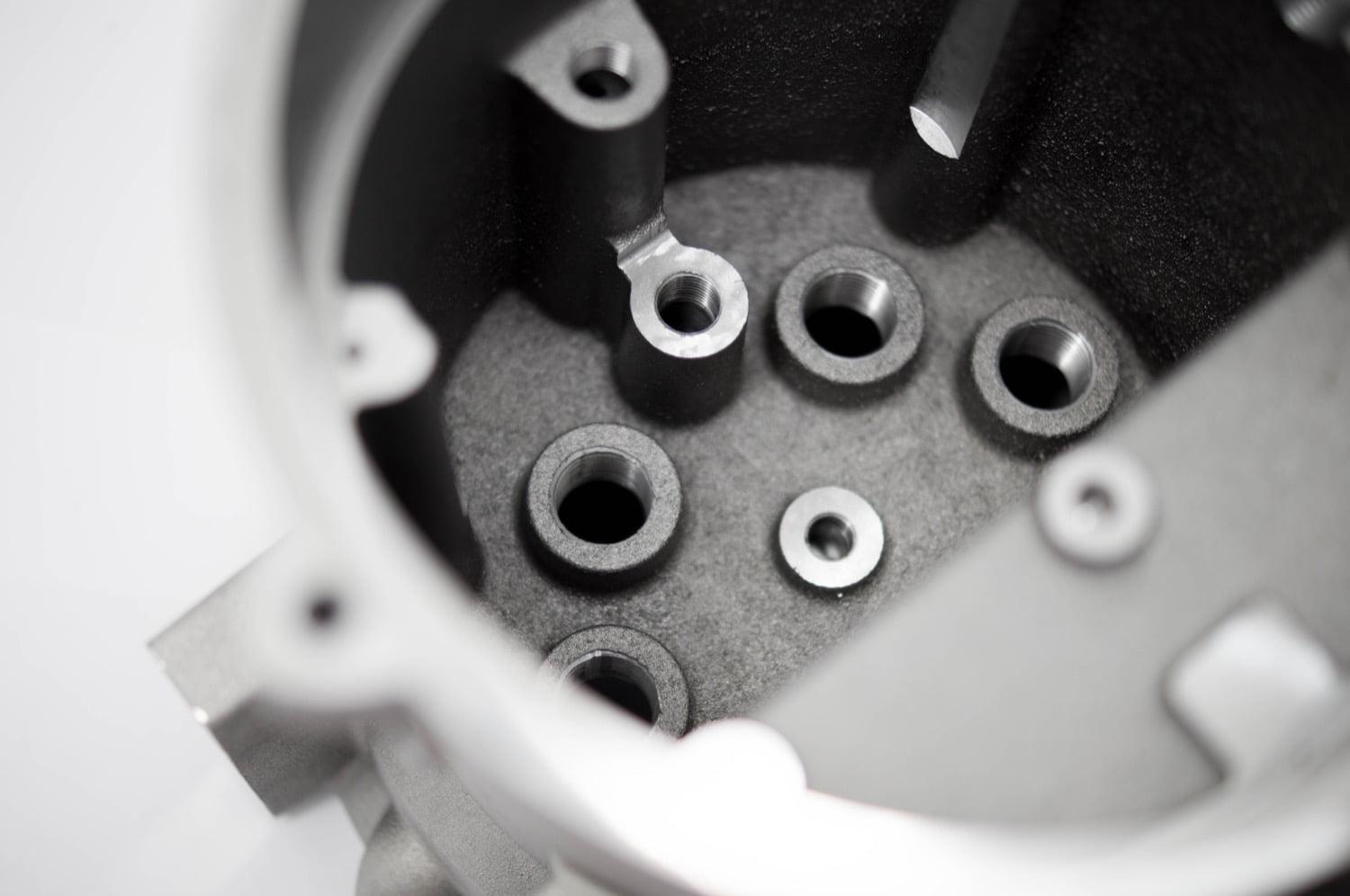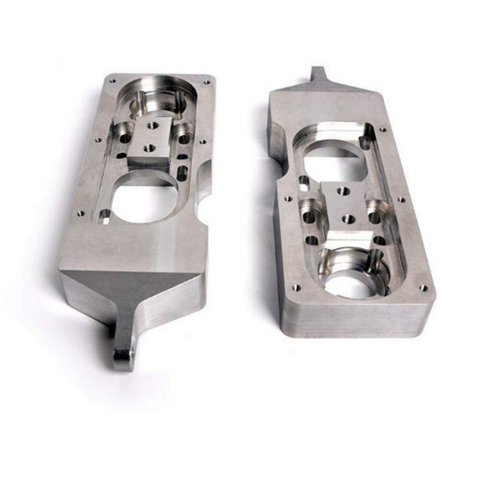Why an Aluminum Foundry is essential for advanced metal parts
How Light Weight Aluminum Foundries Add To Different Industries: A Detailed Review
Aluminum foundries function as crucial vendors across several markets, consisting of auto, aerospace, building and construction, and electronics. They produce elements that are not only lightweight however likewise durable, enhancing the performance of various products. With innovative spreading strategies and a dedication to sustainability, these shops are adapting to meet developing sector demands. As they innovate, the influence of aluminum castings on various applications elevates crucial concerns concerning the future of manufacturing. What lies in advance for this vital sector?
The Role of Aluminum Foundries in the Automotive Sector
As the automotive market progressively welcomes light-weight products to enhance gas efficiency and performance, aluminum factories play a crucial duty in this evolution. These facilities concentrate on the production of aluminum spreadings, which are essential components in modern cars. By supplying high-strength, light-weight parts, aluminum factories make it possible for manufacturers to lower the total weight of vehicles, inevitably causing enhanced gas economic climate and minimized emissions.
Aluminum's resistance to deterioration better boosts vehicle long life, making it an appealing option for car manufacturers. Factories utilize advanced techniques such as die casting and sand casting to produce exact and detailed components, making sure that they fulfill rigorous industry requirements. Additionally, the ability to recycle aluminum effectively adds to a much more lasting manufacturing process. As the automobile market continues to introduce, aluminum factories will certainly continue to be essential in providing the products necessary for the future generation of cars, supporting both efficiency and environmental objectives.

Aerospace Applications of Aluminum Castings
Aluminum spreadings are integral to the aerospace sector, offering a mix of lightweight toughness and resilience that is essential for aircraft performance. These spreadings are used in numerous parts, such as engine components, architectural frames, and landing equipment, where weight decrease is vital for fuel performance and general safety. The adaptability of aluminum enables complicated geometries that boost wind resistant efficiency while maintaining structural integrity.
Developments in casting innovations have actually boosted the precision and surface coating of aluminum components, reducing the requirement for extensive post-processing. This effectiveness not just speeds up production timelines but likewise reduces expenses, making light weight aluminum an eye-catching selection for manufacturers. The deterioration resistance of aluminum guarantees long life and integrity in extreme operating environments, additionally establishing its function in aerospace applications. As the sector advances, light weight aluminum spreadings remain to be a crucial material, driving advancement and supporting the growth of next-generation airplane.
Building And Construction Sector Innovations With Aluminum
The building and construction sector has progressively embraced light weight aluminum because of its light-weight homes and flexibility, paralleling its effective applications in aerospace. Innovations in aluminum layout have resulted in stronger, a lot more efficient structures, allowing building contractors and designers to explore brand-new opportunities. The product's resistance to corrosion and reduced maintenance needs make it specifically appealing for both commercial and residential tasks.
Light weight aluminum's versatility assists in the production of intricate layouts, permitting visual enhancements that were formerly tough with standard products. Prefabrication techniques have also developed, making use of aluminum to minimize construction time and prices substantially. In addition, the power efficiency of aluminum systems-- such as window frameworks and roof covering-- adds to sustainable structure practices, aligning with contemporary environmental standards. As the construction market remains to embrace these advancements, light weight aluminum's duty is anticipated to expand, driving more innovation and contributing to the development of resistant infrastructures.
Electronic devices and the Demand for Lightweight Light Weight Aluminum Parts
With the quick improvement of technology, the demand for lightweight light weight aluminum parts in the electronics industry has actually surged. As tools end up being extra mobile and compact, producers look for products that supply both sturdiness and weight decrease. Aluminum, with its exceptional strength-to-weight ratio, has arised as a recommended choice for elements such as casings, heat sinks, and architectural supports.
The usage of light weight aluminum not just boosts product performance however additionally contributes to energy performance, as lighter tools require less power throughout procedure. In addition, light weight aluminum's outstanding conductivity makes it optimal for digital applications, making certain effective heat dissipation and minimizing the danger of overheating.
As customer choices change towards sleek and light-weight devices, light weight aluminum factories play a vital duty in satisfying the progressing demands of the electronic devices market (aluminum casting). Their capability to generate exact and high-grade aluminum elements sustains advancement, enabling makers to push the borders of style and capability
Sustainable Practices in Light Weight Aluminum Foundries
As the electronic devices market progressively prioritizes sustainability, aluminum shops are adjusting their techniques to line up with these environmental objectives. Numerous shops are carrying out recycling programs that reclaim light weight aluminum scrap, significantly minimizing the need for raw materials and minimizing waste. By making use of energy-efficient technologies, these centers are decreasing their carbon impact; for circumstances, using electrical heaters as opposed to traditional gas-fired ones can lead to considerable energy cost savings.
In addition, light weight aluminum factories are buying water preservation steps, such as closed-loop systems that reuse water used in cooling down processes. These methods not just lower water intake yet additionally reduce the environmental influence connected with wastewater discharge. Furthermore, lots of shops are checking out renewable resource resources, such as solar and wind power, to meet their energy requires sustainably. With these initiatives, light weight aluminum shops exhibit a commitment to environmental stewardship while proceeding to satisfy the demands of the electronics industry.
Future Trends in Light Weight Aluminum Shop Technologies
Arising technologies are poised to change aluminum foundries, boosting efficiency and product top quality while progressing sustainability efforts. Technologies such as artificial knowledge and artificial intelligence are expected to optimize production procedures by forecasting tools failures and enhancing resource allowance. The integration of sophisticated robotics will certainly improve procedures, minimizing labor expenses and decreasing human mistake.
Additive manufacturing, or 3D printing, is additionally getting traction, enabling the production of complicated geometries that were formerly unattainable with traditional approaches. This change can cause considerable product savings and reduced waste. Additionally, wise foundries making use of IoT (Internet of Things) technologies will enable real-time tracking and information evaluation, cultivating positive decision-making.
Finally, the fostering of cleaner melting technologies and recycling methods will better reduce the environmental footprint of light weight aluminum foundries, making them extra lasting. Jointly, these patterns signify a future where light weight aluminum shops can run with higher effectiveness and duty.
Regularly Asked Concerns
What Are the Ecological Influences of Aluminum Foundries?

How Do Foundries Make Certain High Quality Control in Aluminum Spreading?
Foundries ensure quality assurance in aluminum spreading by executing extensive examination processes, making use of sophisticated technology, performing normal material screening, and sticking to sector criteria, therefore maintaining uniformity and dependability in their ended up items. Aluminum Casting Company.
What Is the Typical Lifespan of Aluminum Cast Components?
The ordinary life-span of aluminum cast parts commonly varies from 10 to get more info 50 years, relying on elements such as environmental conditions, usage, and upkeep. Proper treatment can substantially improve their toughness and efficiency in time.
How Are Aluminum Alloys Selected for Specific Applications?
Aluminum alloys are selected based on elements such as stamina, corrosion resistance, weight, and thermal conductivity. Engineers review the details demands of applications to identify the most suitable alloy for finest performance and longevity.
What Are the Safety Regulations for Aluminum Foundry Workers?
Security policies for light weight aluminum foundry employees include personal protective equipment mandates, air flow demands, direct exposure restrictions to harmful materials, and methods for taking care of molten steel. Conformity assurances worker safety and security and decreases health and wellness risks connected with foundry procedures.
As the vehicle sector increasingly embraces light-weight products to boost fuel efficiency and performance, light weight aluminum factories play an important role in this advancement. As customer preferences change in the direction of streamlined and light-weight devices, aluminum shops play a necessary function in meeting the developing needs of the electronics industry. As the electronic devices industry progressively prioritizes sustainability, light weight aluminum foundries are adjusting their methods to align with these environmental goals. Numerous shops are executing recycling programs that reclaim aluminum scrap, significantly reducing the need for raw materials and minimizing waste. Safety and security laws for aluminum shop workers include personal safety devices mandates, air flow requirements, exposure limitations to hazardous materials, and procedures for handling liquified metal.